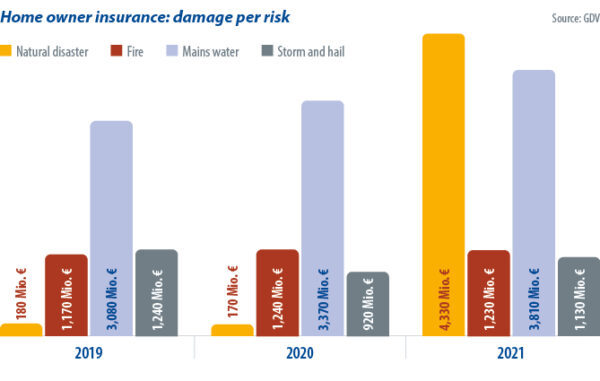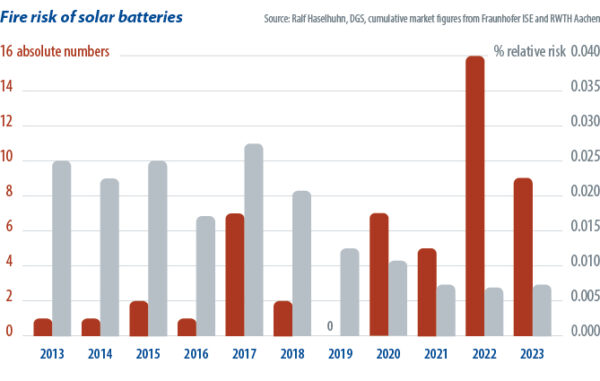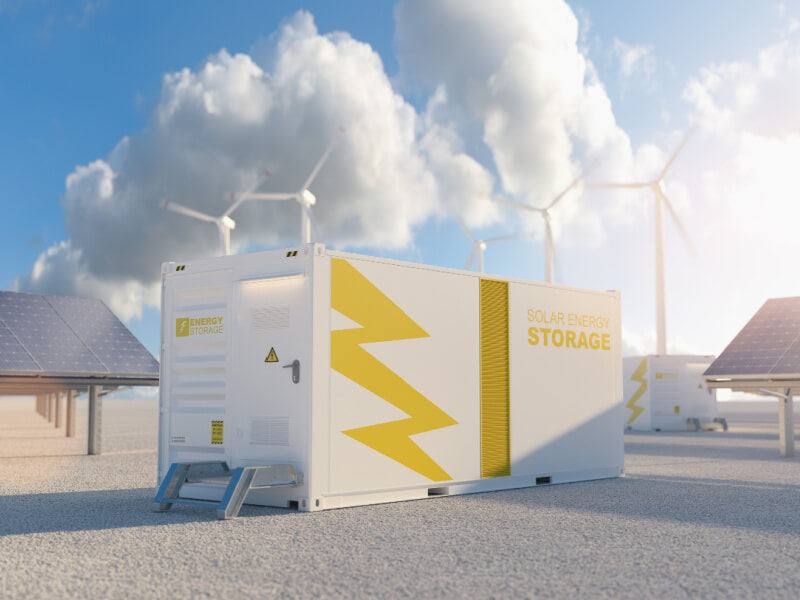https://www.pv-magazine.com/2023/10/28/weekend-read-insuring-against-battery-bother/
Insuring against battery bother

Battery testing and the monitoring of behavior via software and sensors is becoming increasingly sophisticated.
Photo: Twaice
A basement fire breaks out in a single-family home after a battery storage unit violently explodes. A solar storage battery burns down a house after malfunctioning. A battery storage unit explodes and causes more than €100,000 ($106,000) worth of damage. After numerous such incidents, safety tests are due on a number of battery storage systems.
Headlines over the last couple of years have implied that hundreds of thousands of people in Germany who were motivated by the energy transition have naively had fire-hazard devices with a tendency to explode installed on their properties. This is deceptive.
There are currently more than 650,000 battery storage units in Germany. The number which have smoked or burned is not entirely clear. Counting the reports of such incidents from the past year, the result is about a dozen, although not all of them immediately caused major damage. All in all, a small number in the wider national context, when compared to the 160,000 fire incidents in residential buildings counted every year by the insurance association Gesamtverband der Deutschen Versicherungswirtschaft.
In fact, battery-related incidents are trending down, despite an increase in the number installed. Refrigerators and incorrectly used power strips are far more frequently responsible for fires. Although lithium-ion batteries statistically do have a certain fire risk, this includes those used in storage units, laptops, drills, e-scooters, or cordless vacuum cleaners.
Debatable risk
This doesn’t mean that an energy storage device can’t burst into flames, as system owner Werner Beuerle well knows. On May 8, 2022, his battery storage unit exploded in the basement of his home near Calw, Germany.
“At first it smoked like a cigarette,” said Beuerle, who was in his house when the accident happened. After more and more smoke came out of the basement, he suspected that something was brewing. Shortly after, the battery exploded so violently that windows and doors were sent flying. Flames leapt up the facade from the basement windows on three sides of the house. The homeowner suffered from smoke inhalation and spent the evening under medical observation.
The fire department arrived and extinguished the blaze. Smoke had spread throughout the house. The fumes got into household contents and the structure, Beuerle said. Everything was ruined.
“The insurance company still tried to save my upholstered furniture by giving it an ozone bath,” he said.

But that didn’t work. In the end, it all had to go: furniture, fittings, and even memorabilia. The damage was considerable. To restore the house to a habitable condition, workers had to strip the building to its shell. Beuerle and his wife were relocated to temporary housing. He described the incident as akin to winning the lottery but in reverse – also extremely unlikely while very unlucky.
Informed insurers
Thankfully, Beuerle’s insurance company covered his expenses. Crucially, he had informed his building insurer in advance of the installation of a battery energy storage system on his property and set the sum insured high enough for his home and contents. Insurers say that the installation of battery storage has no effect on the building insurance.
Popular content
Still, homeowners that install PV systems and batteries in Germany should contact their insurers.
“This should be done with the installation,” said Matthias Cohrs, a major loss adjuster in the claims department of German insurer GEV.
For homeowners, GEV has been covering solar systems and storage at no additional cost since 2018. Whatever the level of insurance coverage, installation should be carried out by qualified personnel. To further minimize the risk of fire, the German Solar Energy Society (DGS) has published professional rules for the installation and operation of battery storage systems. For example, battery storage units should be installed in a place where the air is dry, the temperature does not fall below 10 C and there are no combustible materials in the vicinity. It would not be advisable to install batteries next to a gas-fired heating system.
Servicing is another key requirement. Homeowners should have their solar systems and battery units serviced at the intervals recommended by the manufacturer or risk paying a high price in the future. If maintenance intervals are not properly observed, the insurer may reduce benefits in the event of a claim. Extending liability insurance to cover a PV system and battery storage is also worth considering. This becomes particularly relevant if a fire causes damage to neighboring buildings, such as in the case of a semi-detached house.

Another reason to talk to the insurer is the increased value of the building. PV systems and their associated battery storage units together cost several tens of thousands of euros. This should be taken into account.
Adequate coverage
That’s the approach Beuerle took. He did not have to pay the cost of his destroyed house or to replace its contents. When it came to temporary accommodation, Beuerle was left on the hook for some expenses but a significant portion was covered by his insurer. Due to the scale of the work required, Beuerle was only able to move back into his house after 325 days. Exact terms for covering temporary housing costs vary between insurers. In Germany, a basic insurance policy may provide €100 per day for hotel accommodation for a maximum of 100 days, with more premium options covering a period of 200 days.
Beuerle’s insurer provided €200 per day, but this was deducted from the agreed sum covered by the policy. While this left the homeowner with some additional costs, these could potentially be recouped through legal action. Beuerle plans to sue his storage manufacturer, making use of German product liability laws, for the sum that was not settled by his insurance company.
Despite the upheaval, Beuerle hasn’t turned his back on PV storage. He has installed a new battery system and has already informed his insurance company. This time, however, the unit is located in his detached garage. If another incident occurs, the damage would be more manageable.
“I’m not afraid of energy storage systems,” he said. “I never have been and I’m not now.”
Beuerle said the insurance company was also fine with the addition of a new storage unit to his policy and his premiums are as agreed before the fire. His attitude to storage fire risks is reflected in the approach made by the insurance industry. HDI Insurance confirmed, when asked, that battery storage is not a hazard it asks about during the course of building insurance applications. Likewise, GEV assesses the risk of battery storage systems to be manageable.
This content is protected by copyright and may not be reused. If you want to cooperate with us and would like to reuse some of our content, please contact: editors@pv-magazine.com.




